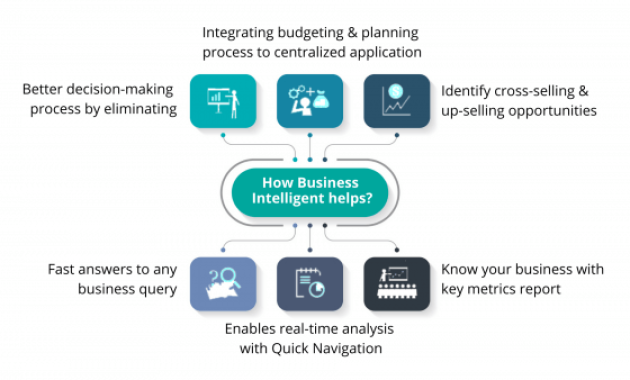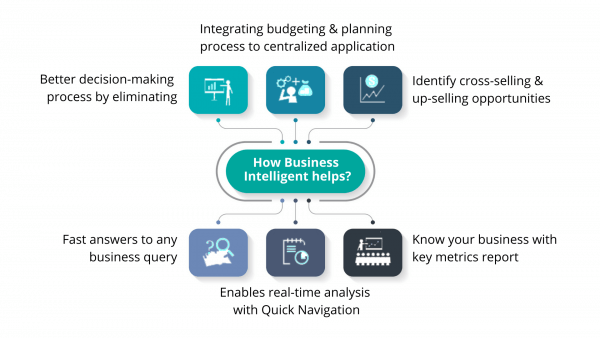
Top 10 Business Intelligence Tools That Drive Revenue: A Data-Driven Guide
In today’s hyper-competitive business landscape, data isn’t just an asset; it’s the lifeblood of success. Companies that effectively harness the power of their data gain a significant edge. They can make smarter decisions, optimize operations, and, ultimately, drive revenue. This is where business intelligence (BI) tools come into play. This guide delves into the best 10 business intelligence tools that are proven to boost revenue generation. We’ll explore their key features, strengths, and how they can transform your data into actionable insights. The right business intelligence tools can significantly impact your bottom line.
Understanding the Power of Business Intelligence
Business intelligence is the process of collecting, analyzing, and presenting business data to help decision-makers make informed choices. It involves a range of technologies and processes, from data warehousing and ETL (Extract, Transform, Load) to data visualization and reporting. The goal is always the same: to uncover patterns, trends, and anomalies that can lead to improved business outcomes. The best 10 business intelligence tools are designed to do exactly that.
The benefits of using business intelligence tools are numerous. They can help you:
- Improve decision-making by providing data-driven insights.
- Identify areas for cost reduction and efficiency gains.
- Track key performance indicators (KPIs) in real-time.
- Gain a deeper understanding of customer behavior.
- Uncover new revenue opportunities.
The Top 10 Business Intelligence Tools to Consider
Choosing the right business intelligence tool depends on your specific needs, budget, and technical capabilities. However, some tools consistently rank among the best due to their robust features, ease of use, and proven track record. Here are 10 business intelligence tools that are driving revenue for businesses of all sizes.
1. Tableau
Tableau is a leading business intelligence tool known for its intuitive interface and powerful data visualization capabilities. It allows users to create interactive dashboards and reports that are easy to understand and share. Tableau excels at connecting to a wide variety of data sources and handling large datasets. Its drag-and-drop functionality makes it accessible to users with varying levels of technical expertise. Many consider Tableau one of the best business intelligence tools.
2. Microsoft Power BI
Microsoft Power BI is a comprehensive business intelligence tool that integrates seamlessly with other Microsoft products. It offers a user-friendly interface, powerful data modeling capabilities, and a vast library of pre-built visualizations. Power BI is a cost-effective solution for businesses of all sizes, particularly those already invested in the Microsoft ecosystem. It’s a strong contender among the best 10 business intelligence tools.
3. Qlik Sense
Qlik Sense is a data analytics platform that uses an associative data model to explore data relationships and uncover hidden insights. Its unique approach allows users to quickly identify patterns and trends that might be missed with other tools. Qlik Sense is known for its data discovery capabilities and its ability to handle complex data sets. It is a strong choice for companies looking for robust business intelligence.
4. Looker (Google Cloud)
Looker, now part of Google Cloud, is a modern business intelligence and data analytics platform. It focuses on data modeling and governance, allowing organizations to build a single source of truth for their data. Looker’s powerful data modeling capabilities enable users to create sophisticated reports and dashboards. It excels at providing consistent and reliable data across the organization. Looker is often ranked as one of the best business intelligence tools.
5. Domo
Domo is a cloud-based business intelligence tool that offers a unified platform for data integration, analysis, and reporting. It provides real-time dashboards and alerts, enabling users to monitor key performance indicators (KPIs) and make data-driven decisions on the fly. Domo is designed for collaboration and is suitable for businesses of all sizes. The platform is among the best 10 business intelligence tools for many businesses.
6. Sisense
Sisense is a business intelligence tool that focuses on simplicity and ease of use. It allows users to quickly connect to data sources, build dashboards, and share insights. Sisense is particularly well-suited for businesses that need to analyze large datasets and deliver insights to a wide audience. It’s a popular choice for embedded analytics and white-labeling solutions. Sisense is often considered as a top-tier business intelligence tool.
7. SAP Analytics Cloud
SAP Analytics Cloud is a cloud-based business intelligence tool that integrates with other SAP solutions. It offers a comprehensive suite of features, including data visualization, predictive analytics, and planning. SAP Analytics Cloud is a strong choice for businesses that use SAP ERP systems and want to leverage their data for better decision-making. It’s a powerful tool among the best 10 business intelligence tools.
8. ThoughtSpot
ThoughtSpot is a search-driven analytics platform that allows users to ask questions about their data in natural language. Its intuitive interface makes it easy for anyone in the organization to access and analyze data, regardless of their technical skills. ThoughtSpot is particularly well-suited for businesses that want to empower their employees to make data-driven decisions. It is a truly modern approach to business intelligence.
9. MicroStrategy
MicroStrategy is a comprehensive business intelligence tool that offers a wide range of features, including data visualization, mobile analytics, and advanced analytics. It is designed for large enterprises and provides a robust platform for managing and analyzing complex data sets. MicroStrategy is a long-standing leader in the business intelligence space.
10. Yellowfin
Yellowfin is a business intelligence tool that focuses on automated insights and data storytelling. It uses machine learning to automatically identify trends and anomalies in data and present them in an easy-to-understand format. Yellowfin is a good choice for businesses that want to automate their reporting and gain actionable insights quickly. It is considered one of the best business intelligence tools for automated insights.
Key Features to Look For in a Business Intelligence Tool
When selecting a business intelligence tool, consider these key features:
- Data Connectivity: The ability to connect to a wide variety of data sources.
- Data Visualization: Powerful data visualization capabilities to create interactive dashboards and reports.
- Data Modeling: The ability to model and transform data for analysis.
- Collaboration: Features that enable users to share insights and collaborate on reports.
- Scalability: The ability to handle large datasets and growing data volumes.
- Ease of Use: An intuitive interface that is easy to navigate and use.
- Security: Robust security features to protect sensitive data.
Implementing a Business Intelligence Strategy
Choosing the right business intelligence tool is only the first step. To truly drive revenue, you need to implement a comprehensive business intelligence strategy. This involves:
- Defining your goals: Identify the specific business outcomes you want to achieve.
- Identifying your data sources: Determine where your data resides and how to access it.
- Building a data warehouse: Consolidate your data into a central repository.
- Selecting the right tool: Choose a business intelligence tool that meets your needs.
- Training your users: Provide training to ensure users can effectively use the tool.
- Monitoring and optimizing: Continuously monitor your results and make adjustments as needed.
Implementing a well-defined strategy will help you maximize the return on investment of your business intelligence tool.
Conclusion: Driving Revenue with Data
In conclusion, the best 10 business intelligence tools offer powerful capabilities to transform data into actionable insights. By leveraging these tools and implementing a robust business intelligence strategy, businesses can make smarter decisions, optimize operations, and ultimately, drive revenue growth. The right tool is an investment that pays dividends. The future of business is data-driven, and the best business intelligence tools are essential for success.
[See also: Data Visualization Best Practices]
[See also: How to Choose the Right BI Tool for Your Business]
[See also: The Future of Business Intelligence]

